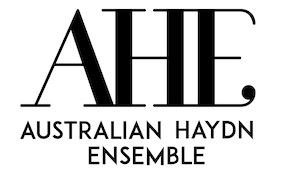French keyboard wizard reveals his classical side and revels in Ravel.
City Recital Hall, Angel Place, Sydney
November 17, 2014
French pianist Jean-Efflam Bavouzet is currently making a welcome return to Australia in concert and recital. Last night saw an all Beethoven first half followed by a second half of complete contrast – Ravel and, a relative stranger to our concert programs, Bruno Mantovani.
Bavouzet cheekily chose to begin his program with Beethoven’s valedictory sounding Sonata No 26 Les Adieux. Despite its wistful opening, the sonatas first movement soon shifts into one of those conversational exchanges with which later Beethoven abounds. With his fiercely interrogatory style, these sonatas suit JEB very well indeed, marrying natural French elegance with an instinct for colour and structural narrative. The lyrical ‘Absence’ Andante was beautifully sprung to poignant effect. Of course, Les Adieux is really all about the return and the Vivace fortissimo played nicely into Bavouzet’s extraordinarily secure technique.
Sonata No 22 followed, one of Beethoven’s odd two-movement sonatas. Bavouzet seemed more immediately at home here, attacking the frenetic opening movement (bizarrely labelled ‘In tempo d’un Menuetto’) with a wider range of emotional dynamics than can sometimes be the case. He made his points very well in what was a most convincing reading. The Allegretto, following without a break, was dispatched with skill while still remaining one of Beethoven’s more elusive essays in the form.
A change of program meant that Sonatas Nos 24 and 25 were jettisoned in favour of the mighty Appassionata – our gain I expect many would say. Having last heard Murray Perahia play the work in Sydney (and incredibly well as it happens) I was curious to hear how Bavouzet – an essentially more muscular player – would respond to the challenge. Perhaps surprisingly he turned out to be less demonstrative than one might have thought. In the opening Allegro assai he kept the dramatics under tight control while exploring a more purely musical agenda. His focus seemed frequently to be on piano sonority rather than narrative structure per se. Nevertheless it all felt beautifully organic. The Andante was relatively brisk, yet had a compelling sense of communion with plenty of rubato – and again, that focus on the sonority of the instrument. Despite the pace it never felt cursory and the left hand/right hand balance was a thing of great beauty. The transition into the Allegro finale was handled with aplomb and the third movement set off at quite a lick. Eschewing the grander fireworks until the very end, Bavouzet nevertheless gave the final section an almost Lisztian treatment.
The second half began with an unfamiliar work, Le Livre de JEB (The book of JEB) by Bruno Mantovani. Written for Bavouzet himself, the work is described as something of a musical portrait. From its dramatic opening flourish through its Messiaenic ruminations it was hard not to find the mind straining to peer inside the pianist himself – to try, as it were, to glimpse the man behind the picture. Meanwhile, JEB himself made a great deal out of an essentially enigmatic piece, yet one that held the attention by force of its confident flare and inventiveness. Ravelian touches may have been intentional, it certainly felt like an appropriate mirror was being held up to the work to follow. Ultimately though it made you think as much about the piano as about the pianist. And a definitive performance? Almost certainly.
Jean-Efflam Bavouzet is probably best known nowadays for his award winning Debussy cycle on Chandos, but before that came a superb complete Ravel on the MDG label. If you have that recording you will know that there is no finer Ravelian than JEB and his performance of Miroirs certainly backed that up. All the sonic awareness and sensitivity that characterises his Beethoven comes together in his Ravel in a perfect synthesis of composer, instrument and pianist.
Noctuelles (Night Moths) was a gossamer chain, the softness of the night contrasting with the fluttering of the insects wings. Oiseaux Triste (Sad Birds) was one of the most perfect pieces of piano playing – intense, painterly, contemplatives. Une Barque sur L’Océan (A Boat on the Ocean) was a relief from the gloom, the sun breaking through to shimmer on the waves. Blissful – and what dexterity! Alborada del Gracioso (Morning Serenade for the Jester) was pure colour, combining rhythmic joie de vivre with a stunning control of dynamics and clarity of purpose. La Vallée des Cloches (The Valley of the Bells) was a perfect exercise in musical Impressionism and pianistic sonics, Bavouzet hardly moving a muscle yet making the piano sing Ravel’s gentle, reflective song.
It’s the delicacy of touch allied with the interpretive intellect that makes Bavouzet’s Ravel so special. These last 25 minutes were worth the price of the ticket alone.
Jean-Efflam Bavouzet plays Beethoven, Ravel and Mantovani at Melbourne Recital Centre on November 25. He plays with the Adelaide Symphony Orchestra on November 21 and 22.












Comments
Log in to join the conversation.